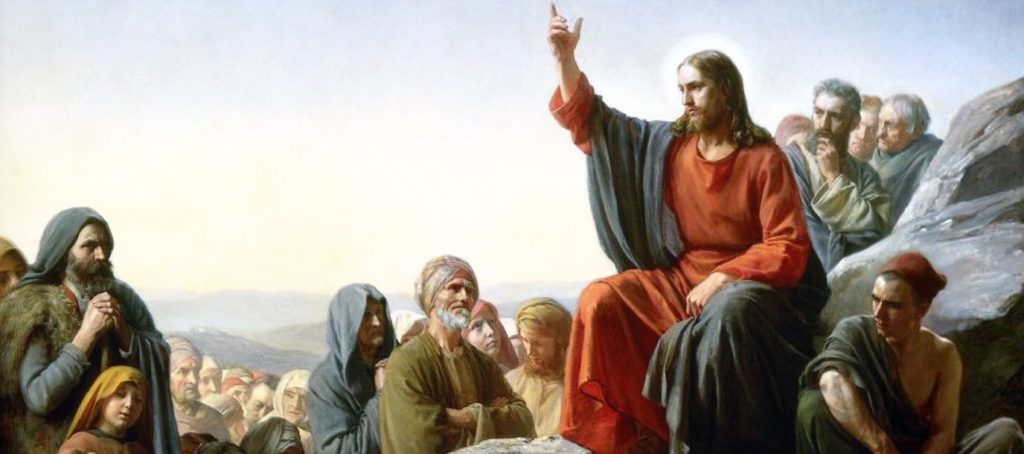
The Six Tasks of Catechesis serve as a framework for helping ensure that our children (and adult converts) are formed holistically in the Catholic Faith. Any formation must include all of these aspects:
1. Promoting Knowledge of the Faith
In the words of the holy apostle Paul, “And how can they believe in him of whom they have not heard?” (Romans 10:14). Catholic education must involve first and foremost an education in the dogmas of the Catholic Faith. There are 255 infallible dogmas of the Faith and teaching what we all must believe – and why we believe it – is an essential part of our role as parents, teachers, and catechists. This is the great role provided by catechisms.
As a result, we too must be well formed in what the Church teaches by knowing the Faith’s teachings before we can serve as teachers of others. You need to understand both what the Church teaches and why She teaches it. Children are not looking for guesses or for superficial answers. Teaching religion is a spiritual work of mercy that the Church blesses with indulgences but teaching error to children – even unintentionally – can lead to the direct loss of souls. How many children have been led astray by teachers giving false answers or saying that they don’t know? How many of their children will grow up in a non-religious household as a result?
2. Liturgical Education
Living out the Faith involves always incorporating the Catholic Liturgical year. What is the traditional Lenten fast? What is Advent and has how it changed over the centuries? Why do we bless candles on Candelmas, get our throats blessed on St. Blaise’s feast day, or have Epiphany water solemnly blessed on January 5th? Why do we go to Mass every single Sunday and all Holy Days of Obligation? Why do we abstain from meat on the Fridays of the year and other days too? The Catholic Faith must be lived out in practice. It is not an intellectual religion only. Teaching children the great joy of living a liturgical year – and helping rediscover treasures of our grandparents that modern man has forgotten – is an important role we play in catechesis.
3. Moral Formation
The Catholic Faith necessitates that we live a moral life in accordance with natural law and God’s law as taught through His established religion, the Catholic Church. We must teach about Christian modesty, the inalienable right to life from conception to natural death, the care for the poor and needy, and all aspects of morality. We must never shy away from our responsibility to teach morality since St. Paul warns us that those who live opposed to Christian morality “have no share in the Kingdom of God” (cf. 1 Corinthians 6:9).
4. Teaching to Pray
All we do should begin and end in prayer. As Christ Himself taught us, “Pray without ceasing.” Whether it be frequent Mass attendance, the Divine Office, the Rosary, meditation, spiritual reading, impromptu prayers throughout the day, the Angelus, or others, a Catholic’s life must be permeated by prayer. Any true catechesis must involve prayer in every lesson. Prayer is necessary for salvation. May our Lord help us to pray well.
5. Education for Community Life
The Faith must be internalized and lived out as a community. That is why we should be involved in our parishes for devotions and Mass but also for helping others who are in need. We should know our neighbors. We should frequently think of the spiritual and corporal works of mercy and make an examination of conscience on how well we are living and teaching others to observe these. We know that our Lord will judge us on them (cf. Matthew 25:31-40), which makes it even more important. Our Lord became man and lived among us in a family life for 30 years. We too must live as good sons, daughters, parents, teachers, employees, employers, and citizens in harmony. Teaching this through catechesis is vital to helping us restore Christendom in our parish life.
6. Missionary Initiation
All catechesis must involve and terminate in the desire to bring about more disciples for our Lord.
One year after naming World Mission Sunday, Pope Pius XI in 1927 named both St. Francis Xavier and St. Thérèse of Lisieux as the patron saints of missions. St. Francis Xavier was a prolific missionary. Despite language problems, lack of funds, resistance from the Europeans as well as the natives, he persevered. St. Francis quite likely converted more people in his life than anyone else and he is frequently referred to as the Church’s greatest missionary after the Apostle St. Paul. He baptized over 50,000 in 10 years, converted the entire town of Goa in India, and he labored long in Japan.
But why St. Thérèse of Lisieux along with St. Francis Xavier? She died at the young age of 24, after spending several years in a cloistered monastery. She did not teach catechism, she did not baptize anyone, and she did not go on any foreign missionary trips. So why is she a co-patron of missions? In her heart, she had desired to be a great missionary in foreign lands, bringing many souls to Christ; yet in her humility she knew this was not Divine Providence’s plan for her. Instead, the Little Flower willingly offered her life as a victim soul to gain those graces necessary for the conversion of others. Pope Pius XI recognized that prayer and the contemplative life was essential to support those who were active in the mission fields.
In accordance with our own state in life, we can all join the spiritual missionary work of St. Thérèse. In fact, as confirmed Catholics we are called by Christ to cooperate, as our vocation and duty permits, with His great Mandatum: “Going therefore, teach ye all nations; baptizing them in the Name of the Father, and of the Son, and of the Holy Ghost. Teaching them to observe all things whatsoever I have commanded you” (Mt 28:19-20). And we must teach others to do the same. Ite Missa Est.


